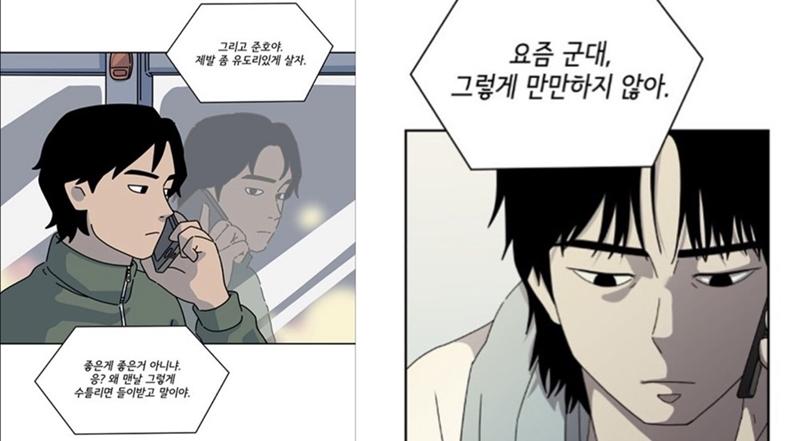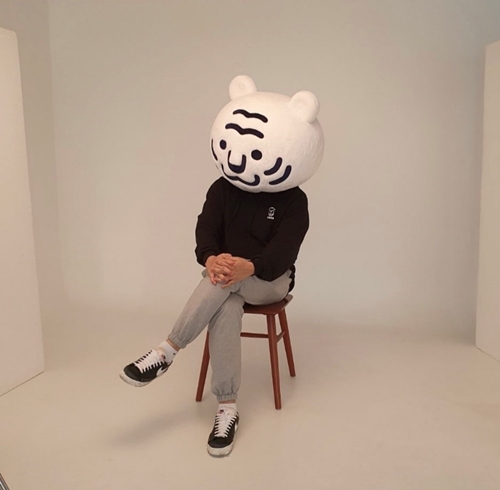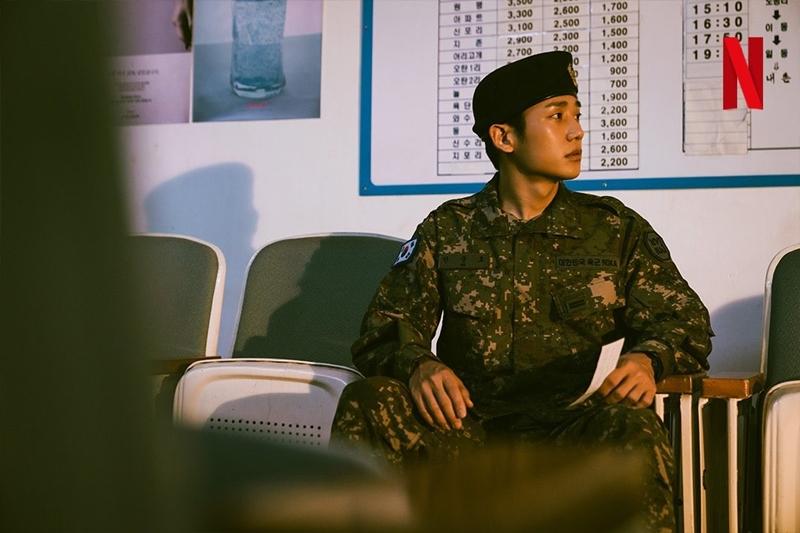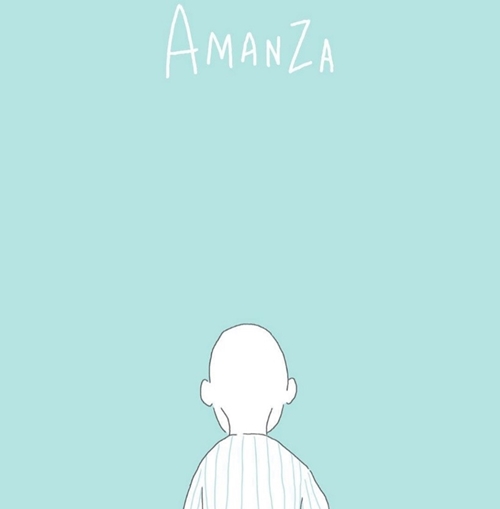
These scenes are from Kim Bo-tong's most popular webtoon "D.P. Gaeui Nal (Deserter Pursuit: Dog's Day)," which debuted in 2015. "I tried using a dark and rigid style befitting a story about military abuse, which isn't an appropriate topic to caricature," he said in a written interview with Korea.net. (Kim's official Instagram account)
By Yoon Seungjin
"I think that your past life is the foundation, and telling a story derived from the emotions and problems you felt and faced along the way makes the story come to life. That's why I want more experiences."
This is how Kim Bo-tong, whose claim to fame is his hit 2015 webtoon series "D.P. Gaeui Nal (Deserter Pursuit: Dog's Day)," perceives "experience." This work is based on his own experience in the military, which holds fond memories for some and nightmares for others. In Korea, all able-bodied men have to serve for a year and a half.
After debuting with "AmanZa" in 2013, a webtoon based on his father's years-long battle with cancer, Kim grabbed the spotlight two years later with his second work "D.P. Gaeui Nal." In his 2017 essay "I'm Not Unhappy Yet," Kim shared how he became a webtoonist while preparing for law school after leaving a prestigious company. He has expanded his horizons beyond webtoons by scripting both seasons of Netflix's live-action adaptation of "D.P." and directing the original Whatcha series "King of the Desert" in December last year.
The following are excerpts of an Aug. 24 written interview with Kim.

Webtoonist Kim Bo-tong poses for a photo in a white tiger costume that symbolizes his content production company Studio Tiger. (Kim's official Instagram account)
What made you transition from a white-collar worker to a webtoonist?
I quit my job because I couldn't adapt to corporate life, and after thinking about what to do with my life, I decided to go to law school. I couldn't get in and someone suggested that I try drawing comics. So, I became a webtoonist by chance. I've survived in this field for 10 years because I create webtoons with the mindset of an office worker who needs to "deliver" something rather than that of an artist who needs to "create" something.
"D.P. Gaeui Nal" is especially popular with Asian readers. Why do you think so?
I think it's because many Asian countries have mandatory military service or rigid social orders that value organizational hierarchy over individual freedom. Because cultures often have bad customs like military abuse, something in my work must resonate with them.

This is a scene from Season 2 of "D.P.," the live-action series of Kim Bo-tong's webtoon, that was released on July 28 on the global streaming service Netflix. It ranked fifth on the site's global chart for shows not in English three days after its release. (Netflix's official Facebook page)
For readers unfamiliar with the Korean military system, please explain what "D.P." is.
The Korean military drafts nearly all men in their 20s, making them serve for a specific time. Just like in any society or organization, issues can arise in the Korean military including desertion. Our country is still technically at war with North Korea, so desertion is considered a grave offense. Special soldiers, or those on "Deserter Pursuit," track down deserters, similar to those who chase replicants in the 1982 film "Blade Runner."
Season 2 of the Netflix adaptation of your webtoon debuted on July 28. What is your impression of the series?
I felt a deep sense of guilt for the suffering of the production crew because being a writer is basically sitting at a desk and turning delusions into words. So I got a bit desensitized to the idea of "how many people suffer when my work is made." That doesn't mean I can't write something that's easy to shoot, so I write with a sense of guilt. Since directing "King of the Desert" last year, I've done deep self-reflection.

Kim Bo-tong's first webtoon "AmanZa" (2013) is based on the cancer battle that his father fought for years, combining fairytale-like illustrations against a tragic background. (Kim Bo-tong's official Instagram account)
Both "AmanZa" and "D.P. Gaeui Nal" are based on your experiences. What does experience mean to you?
I think that your past life is the foundation, and telling a story derived from the emotions and problems you felt and faced along the way makes the story come to life. That's why I want more experiences. It's a shame I have no time for new experiences because of too much work. If you dream of becoming a writer, I recommend getting as much experience as possible.
You signed this year with Creative Artists Agency of the U.S. What changes will you make to target the global market?
I won't change my subjects because even when dealing with problems in Korean society like "D.P." does, they can resonate with other cultures. I want to discuss issues found in any society to give viewers the opportunity to reflect on their own societies. The stories I'm discussing with overseas production companies are being developed from that perspective.
What personal story that might be in your next webtoon can you share with Korea.net?
I've said for a long time that I want to talk about saengnobyeongsa (life, aging, sickness and death) and hiroaerak (happiness, anger, sadness and pleasure). I discussed byeong (sickness) and ae (sadness) in "AmanZa," a story of life, and saeng (life) and no (aging) in "D.P. Gaeui Nal." I now want to talk about ro (anger), sa (death), hi (happiness) and rak (pleasure). My stories are to be told through a universal process that everyone goes through. I'm putting together an interesting story about little things that happen anywhere like at work or school.
scf2979@korea.kr
![[Interview with webtoonist ④] Kim BT tests limits, uses own experiences](/upload/content/image/8a64efb6e27444fb83b71a3f574f5f8b_20230906155207.jpeg)
![[Interview with webtoonist ③] Maanchwee adds unique 'senses' to her works](/upload/content/image/50041cf7ca3c4559b1a60252f7081add_20230814090914.jpg)
![[Interview with webtoonist ②] 'Please draw as well as read webtoons'](/upload/content/image/16d70b129ed246d1a0105f690a05cd96_20230803135836.jpg)
![[Interview with webtoonist ①] Showing dark side of humans](/upload/content/image/f3775531256e4abcad295ba723dfcd59_20230720074252.JPG)